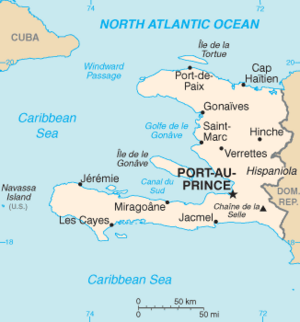One billion are facing starvation due to desertification. In part it is the result of global warming, in part, poor farming techniques. Yet, we in the west have more important news to hear, the President was called a liar by a Senator.
As The New Nation anticipated, the “devastating news†released by the World Food Programme barely even reached the level of “mere ‘news.’†In The New York Times, the WFP report of the reduction in the meager Western efforts to deal with this growing “human catastrophe†merited 150 words on page ten under “World Briefing.†That is not in the least unusual. The United Nations also released an estimate that desertification is endangering the lives of up to a billion people, while announcing World Desertification Day. Its goal, according to the Nigerian newspaper THISDAY, is “to combat desertification and drought worldwide by promoting public awareness and the implementation of conventions dealing with desertification in member countries.†The effort to raise public awareness passed without mention in the national U.S. press. Such neglect is all too common.
It may be instructive to recall that when they landed in what today is Bangladesh, the British invaders were stunned by its wealth and splendor. It was soon on its way to becoming the very symbol of misery, and not by an act of God.
As the fate of Bangladesh illustrates, the terrible food crisis is not just a result of “lack of true concern†in the centers of wealth and power. In large part it results from very definite concerns of global managers: for their own welfare. It is always well to keep in mind Adam Smith’s astute observation about policy formation in England. He recognized that the “principal architects†of policy—in his day the “merchants and manufacturersâ€â€”made sure that their own interests had “been most peculiarly attended to†however “grievous†the effect on others, including the people of England and, far more so, those who were subjected to “the savage injustice of the Europeans,†particularly in conquered India, Smith’s own prime concern in the domains of European conquest.
Smith was referring specifically to the mercantilist system, but his observation generalizes, and as such, stands as one of the few solid and enduring principles of both international relations and domestic affairs. It should not, however, be over-generalized. There are interesting cases where state interests, including long-term strategic and economic interests, overwhelm the parochial concerns of the concentrations of economic power that largely shape state policy. Iran and Cuba are instructive cases, but I will have to put these topics aside here.
The food crisis erupted first and most dramatically in Haiti in early 2008. Like Bangladesh, Haiti today is a symbol of misery and despair. And, like Bangladesh, when European explorers arrived, the island was remarkably rich in resources, with a large and flourishing population. It later became the source of much of France’s wealth. I will not run through the sordid history, but the current food crisis can be traced directly to 1915, Woodrow Wilson’s invasion: murderous, brutal, and destructive. Among Wilson’s many crimes was dissolving the Haitian Parliament at gunpoint because it refused to pass “progressive legislation†that would have allowed U.S. businesses to take over Haitian lands. Wilson’s Marines then ran a free election, in which the legislation was passed by 99.9 percent of the 5 percent of the public permitted to vote. All of this comes down through history as “Wilsonian idealism.â€
More via Chomsky: What America's 'Crisis' Means to the Rest of the World | | AlterNet.
Related articles by Zemanta
- Food crisis at emergency level in Guatemala (cnn.com)
- World Briefing | Africa: Kenya: U.N. Aid Group Notes Food Needs (nytimes.com)
- Rethinking Food Production For A World Of Eight Billion (treehugger.com)
- Starvation ravages East Africa (thestar.com)
- Lush Land Dries Up, Withering Kenya's Hopes (nytimes.com)
- US's 'arc of instability' just gets bigger (citizengkar.wordpress.com)



2 comments:
[...] Chomsky: What America’s ‘Crisis’ Means to the Rest of the World (citizengkar.wordpress.com) [...]
[...] Chomsky: What America’s ‘Crisis’ Means to the Rest of the World (citizengkar.wordpress.com) Possibly related posts: (automatically generated)The End of PovertyThe Breadbasket of South Korea: MadagascarSaving the Wildlife of Madagascar [...]
Post a Comment